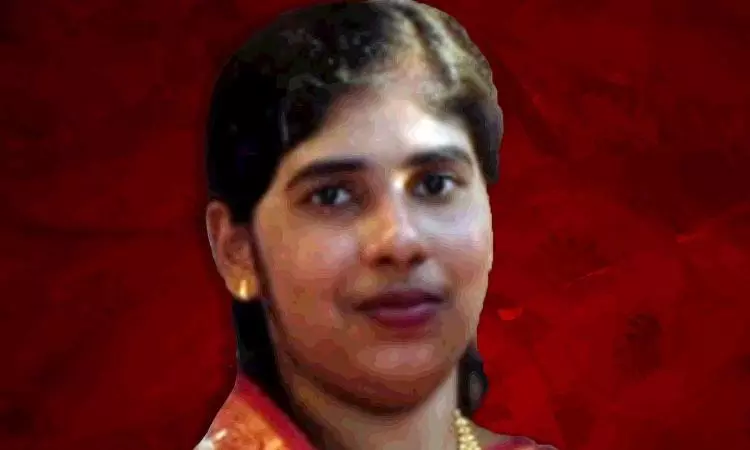
SC to hear plea to save Indian nurse Nimisha Priya from execution in Yemen
SC agrees to hear petition on July 14 seeking Centre's diplomatic efforts to explore blood money option for Nimisha Priya, facing execution in Yemen on July 16

The Supreme Court on Thursday (July 10) agreed to hear a plea seeking a direction to the Centre to use diplomatic channels to make a last-ditch attempt to save an Indian nurse, Nimisha Priya, who is likely to be executed in Yemen on July 16 on murder charges.
A bench of Justices Sudhanshu Dhulia and Joymalya Bagchi listed the matter for hearing on July 14 after advocate Subhash Chandran KR said diplomatic channels need to be explored at the earliest.
Also Read: Nimisha Priya, Indian nurse on death row to be executed on July 16 in Yemen
Writ petition filed
Just days ahead of the reported execution of Nimisha Priya, a Malayali nurse facing the death penalty in Yemen, the “Save Nimisha Priya – International Action Council” filed a writ petition before the Supreme Court of India.
The writ urged the apex court to direct the Ministry of External Affairs (MEA) and the Indian Embassy (operating via its Riyadh-based camp office, due to the absence of diplomatic presence in war-torn Yemen) to take immediate steps to facilitate negotiations with the victim’s family and offer the financial settlement required under Yemen’s legal framework.
Filed under Article 32 of the Constitution, the plea urged urgent diplomatic intervention from the Union Government to initiate negotiations for a pardon from the victim's family under Yemen’s Islamic legal system, which permits ‘blood money’ (Diyah) settlements in lieu of capital punishment.
Swift action
The petition comes after media reports on July 8 suggested that the Yemeni authorities have fixed July 16 as the tentative date for Nimisha Priya’s execution.
With just a few days remaining until the reported execution date, the petition warned that any further delay could render all legal remedies infructuous.
The council fears that without immediate steps from the Indian government, Nimisha Priya could be executed without her legal right to seek Diyah ever being activated.
Also Read: Nimisha Priya case | Extending all possible help to solve issue, says Centre
Right to life
The plea stated that payment of blood money to the family of the deceased permissible under Sharia law can be explored. The family of the deceased may pardon the Kerala nurse if blood money is paid, the petitioners submitted.
The petition asserts that this inaction violates Nimisha Priya’s fundamental right to life under Article 21 and highlights that her family lacks the means or legal access to independently negotiate with the deceased’s family in Yemen — a country under Indian travel restrictions since 2016 due to security concerns.
The bench then asked the counsel to serve the copy of the petition to the Attorney General and sought his assistance.
Who is Nimisha Priya?
Nimisha Priya (38), an Indian citizen and trained nurse from Palakkad district of Kerala, has been in Yemeni custody since 2017. She was convicted for the death of Yemeni national Talal Abdo Mahdi, who allegedly subjected her to prolonged torture and abuse.
Priya had reportedly moved to Yemen in the early 2010s and partnered with Mahdi to start a clinic in Sana’a in 2015. However, the partnership turned abusive, with Mahdi allegedly seizing her passport, morphing photos to falsely claim marriage, and financially exploiting her.
Priya allegedly attempted to retrieve her passport from Mahdi with the help of a jail warden by sedating him — a plan that tragically backfired when Mahdi, a known substance abuser, died due to an overdose in July 2017.
She was arrested, tried, and sentenced to death by a Yemeni trial court in 2020, and her final appeal was rejected in 2023.
Also Read: Iran may intervene to save life of Indian nurse on death row in Yemen
Diplomatic intervention sought
However, the appellate court kept open the possibility of resolving the matter through Diyah — a form of financial compensation or “blood money” under Sharia law — if the victim’s family agrees to a pardon.
The “Save Nimisha Priya – International Action Council” argues that the Indian government is yet to initiate any formal diplomatic or legal channel to facilitate the Diyah process, even though the legal option remains open.
The organisation is made up of expatriate Keralites, lawmakers, human rights activists, and legal professionals, and was formed in 2020 specifically to help secure justice for Nimisha Priya.
The petitioner also emphasised that it is not seeking financial assistance from the government. “We are ready to raise the required blood money through public contributions, All we seek is diplomatic facilitation,” said N.K. Kunhahammed, treasurer of the Action Council and deponent in the case.
Also Read: Indian nurse facing death penalty in Yemen: MEA says it’s extending all possible help
Blood money clause
Diyah is a recognized concept under Sharia law, followed in Yemen, where the family of a murder victim can pardon the accused in exchange for compensation.
According to Islamic jurisprudence, this principle is rooted in the Quran and serves as an alternative to the principle of “Qisas” or equal retaliation.
Legal experts note that diplomatic intervention is often essential in cross-border capital cases involving blood money negotiations, particularly when citizens of countries without consular access in the prosecuting nation are involved.

